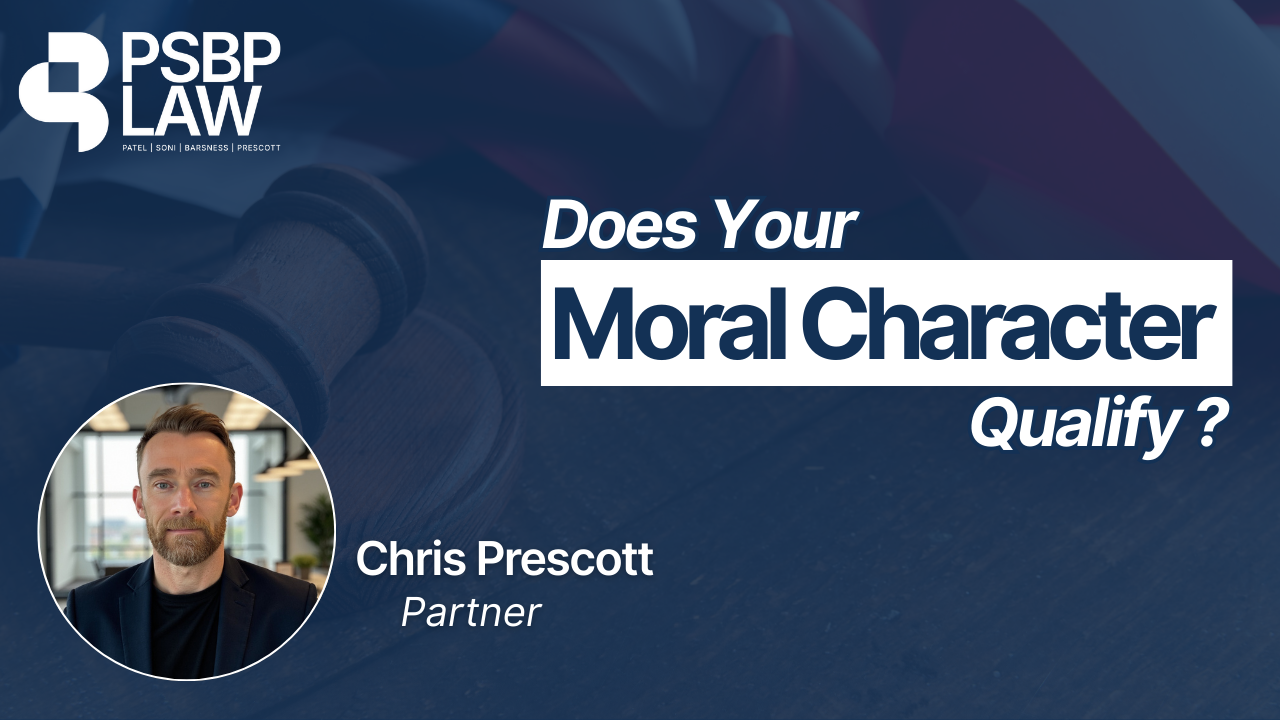USCIS has issued a new policy memorandum—PM-602-0188, “Restoring a Rigorous, Holistic, and Comprehensive Good Moral Character Evaluation Standard for Aliens Applying for Naturalization.”
This memo signals a major shift in how the agency intends to evaluate whether applicants for naturalization meet the requirement of being a person of “good moral character” (GMC).
In addition, the administration issued a second policy memorandum titled “Resumption of Personal Investigations of Aliens Applying for Naturalization (INA 335 (a)” announcing that USCIS will once again conduct “neighborhood investigations” as part of its assessment of an applicant’s good moral character. These investigations may extend to the applicant’s place of residence and employment. In practice, this could involve obtaining testimonial letters from neighbors, employers, co-workers, or business associates who can corroborate the applicant’s character and eligibility for naturalization. While applicants are not required to proactively submit such evidence, USCIS reserves the right to request it during the adjudication process. In certain cases, however, the neighborhood investigation requirement may be waived.
What the Memos Say
The first memo emphasizes that becoming a U.S. citizen is not merely a procedural benefit but a “sacred and profound responsibility.” To that end, USCIS officers are directed to conduct a holistic review of each applicant’s life, not just check for the absence of statutory disqualifications.
The new framework restores a totality of the circumstances approach, considering both negative conduct and positive contributions. Officers must now weigh factors such as:
-
Positive indicators: Community service, caregiving responsibilities, stable employment, educational achievements, compliance with taxes, and financial responsibility.
-
Negative indicators: Statutory permanent bars (e.g., murder, aggravated felony, persecution, torture, genocide), conditional bars (e.g., multiple DUIs, controlled substance violations, unlawful voting, false claims to citizenship), and even lawful but questionable behaviors such as reckless driving, habitual traffic infractions, harassment or aggressive solicitation.
-
Rehabilitation: Applicants who have made mistakes may be able to show rectifying overdue child support payments, compliance with probation, reformation efforts, repayment of overdue benefits or taxes.
In essence, USCIS officers are now tasked with looking beyond whether an applicant avoided trouble with the law—they must determine if the applicant has affirmatively demonstrated a character consistent with “the average citizen of the community.”
The second memorandum, which reinstates “neighborhood checks,” could impose an additional burden on applicants by requiring documentation or testimonial letters from neighbors, employers, or other community members attesting to their good moral character. Failure to provide this evidence, if requested by USCIS, could jeopardize the application and potentially result in a denial. This added layer of scrutiny not only increases the evidentiary demands on applicants but also creates greater uncertainty in the naturalization process.
Why These Memos Matter
These new memos reintroduce broad officer discretion and a higher evidentiary burden on applicants.
While the first memo highlights positive attributes as part of the evaluation, the real takeaway is that USCIS officers now have wider authority to deny naturalization based on their subjective assessment of character. They can also require applicants to provide additional documentation demonstrating their good moral character.
What Applicants Should Do
Applicants for naturalization should prepare to go beyond the basics. This means:
-
Gathering evidence of positive contributions: community involvement, volunteer service, caregiving responsibilities, letters of support from neighbors, co-workers etc attesting to their good moral character.
-
Proactively addressing past issues: evidence of rehabilitation, tax compliance, payment of debts, completion of probation, etc.
-
Presenting a strong narrative: applicants should be ready to explain their life story in a way that highlights moral growth, responsibility, and alignment with community standards.

Conclusion
The return to a “holistic” good moral character review and the revival of neighborhood checks reflect a broader shift toward heightened scrutiny in the naturalization process. While the policy memorandums acknowledge positive contributions as part of the evaluation, they also expand officer discretion and create new evidentiary hurdles for applicants.
In practical terms, this means applicants should expect longer reviews, more document requests, and the possibility of being judged on subjective community standards rather than just statutory bars. Combined with talk of a more difficult naturalization test on the horizon, the path to citizenship may soon become significantly more challenging.
For those preparing to apply, the best defense is a proactive approach: build a strong record of positive contributions, address any past issues head-on, and be ready to present a compelling case for your moral character. Citizenship remains attainable, but success will increasingly depend on preparation, documentation, and the ability to demonstrate that you not only meet the minimum requirements but embody the values of a responsible and active member of society.